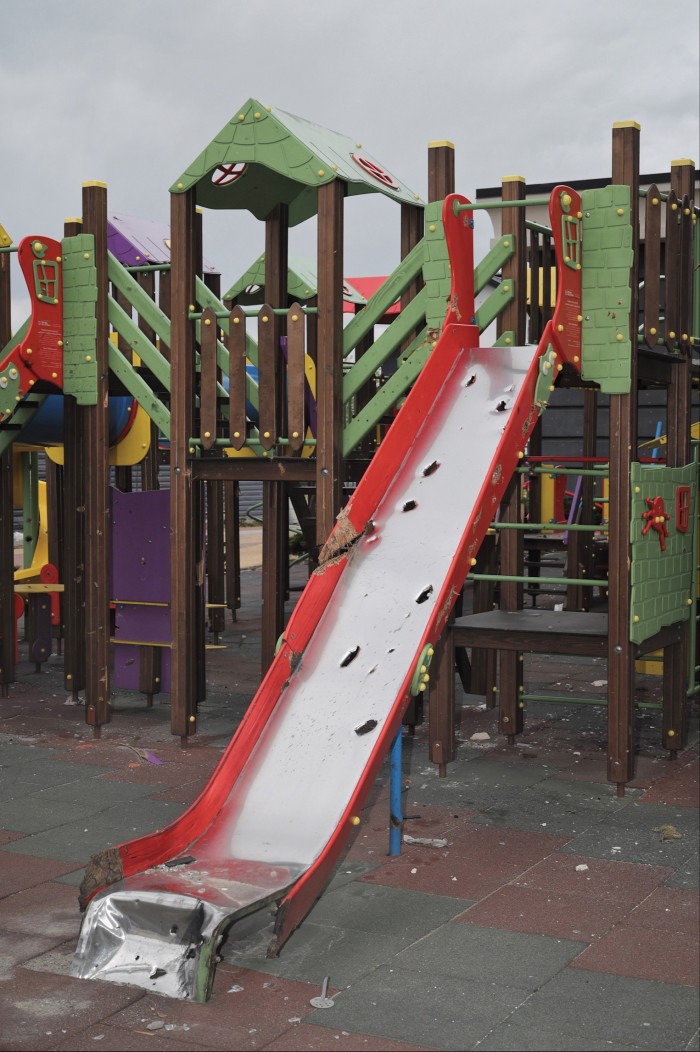I recently had an unusual dream where a younger version of myself was standing on a street in Soviet Kyiv with my classmate, Leonid Shterenberg, who, due to the antisemitism of that era, later changed his family name to sound more Ukrainian. In the dream, Leonid was occupied with something, holding a shovel, while I stood beside him on a dry road. Strangely, I felt water seeping into my boots. Despite removing them, emptying out the water, and putting them back on, the boots inexplicably filled with water again and again.
For two years following my service in the Soviet army, I continued to wear my military footwear. Perhaps it was a fashion choice, or maybe it represented a psychological attachment to my military past, despite being back home and living as a free individual in 1980s Kyiv.
This dream triggered memories of other vivid dreams I’ve had recently, all etched in intricate detail in my waking thoughts. Though not directly related to the ongoing war, I believe the current circumstances have heightened my dream recollection. My sleep patterns have shifted, characterized by instability, anxiety, and interruptions. I find myself attuned to the silence, easily roused by air raid signals. In response, I would rise, retreat to the hallway, and contemplate whether to prepare for potential danger or engage in mundane tasks like washing my face and brewing coffee.
I’m not alone in experiencing intense dreams during these turbulent times. While our bodies may not be under enemy control, our minds certainly feel the weight of the situation. A friend shared her dream of being in a filtration camp in occupied territory, reflecting the proximity of conflict to our daily lives. The psychological toll of living on the outskirts of Kyiv, where Russian forces wreaked havoc, is palpable. The uncertainty, coupled with wavering support from Western allies, has taken its toll on our collective psyche.
As journalists flock to Ukraine to cover the second anniversary of Russia’s full-scale aggression on February 24, there is a renewed spotlight on the country. Interviews with locals on Kyiv’s bustling streets reveal a weariness, a fatigue born of prolonged uncertainty and fluctuating international backing. The struggle for a just resolution, the liberation of occupied territories, is draining hope amid stalled funds and discord in Western support.
While Ukrainian responses to journalists may reflect a shift from optimism to realism, there is a prevailing sense of resilience. The acknowledgment that the war is a long-term reality necessitates a recalibration of expectations. The daily routines of civilians now incorporate air raid alerts alongside weather forecasts, underscoring the normalization of wartime conditions.
The onset of spring in Ukraine, marked by the return of white storks, heralds a season of renewal amidst turmoil. Efforts to fortify stork nests against electrical hazards mirror the dual focus on restoration and protection amid adversity. Farmers persist in readying fields for planting, embodying a spirit of resilience amid upheaval. Even those called to military duty yearn for brief respites with loved ones, cherishing fleeting moments of normalcy amidst chaos.
In the realm of culture and commerce, the Ukrainian Sommelier Association navigates the challenges of wartime disruptions while promoting the country’s burgeoning wine industry. By leveraging international partnerships and showcasing Ukrainian wines abroad, the association sustains a vital sector amidst turmoil. The war’s impact on wineries and vineyards underscores the industry’s resilience amid destruction.
The narrative shifts to Transcarpathia, a region close to my heart but unexplored in terms of its winemaking heritage. A poignant story unfolds in Vinnytsia, where a bookstore named Heroes emerges as a tribute to a fallen journalist and poet. The bookstore, born out of tragedy, symbolizes resilience and remembrance in the face of loss and uncertainty.
As the war’s toll mounts, families grapple with the absence of a National Military Memorial Cemetery, delaying the final resting place for fallen soldiers. The bureaucratic hurdles and emotional weight of honoring the fallen underscore the enduring impact of conflict on Ukrainian society.
Amidst the solemn backdrop of military funerals and national mourning, life in Ukrainian cities pulsates with cultural vitality. Emerging musicians and artists infuse daily existence with creativity and resilience, offering a counterpoint to the somber realities of war. Notable figures like Oleksandr Usyk channel patriotism through art, embodying a shift in personal and cultural narratives amidst adversity.
In the midst of uncertainty, initiatives like the Checkpoint Drum School provide a creative outlet and a sense of purpose for individuals navigating wartime challenges. The school’s founder’s efforts to support war veterans through music therapy highlight the multifaceted responses to trauma and healing in a society grappling with prolonged conflict.
As Ukraine navigates the complexities of war and resilience, the enduring spirit of its people shines through in moments of creativity, remembrance, and perseverance. The interplay between personal dreams, collective memory, and societal transformation underscores the profound impact of conflict on individual lives and national identity.
